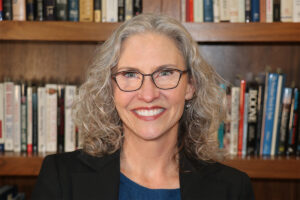
Interview of Nancy Jackson, November 9, 2023
Interviewed by Rex Buchanan
Nancy Jackson, founder and director of the Climate + Energy Project (CEP) from 2007 to 2010, recalls being challenged by the founder of the Land Institute on her approach to finding workable solutions to climate change. Jackson held that alternatives should be found to meet the needs of western Kansans for energy, good jobs, and a sustainable economy. Based on that challenge she started the CEP through the generosity of many experts in Kansas and across the country. Those initial years of the CEP were significant, and the project's impact was unexpected. In this Show Moreinterview Jackson discusses that impact and the importance of meeting people where they are in order to find solutions to difficult public policy issues. Show Less
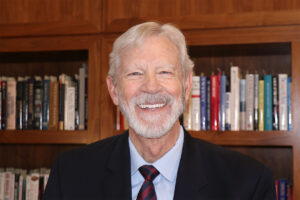
Interview of Earl Watkins, December 19, 2023
Interviewed by Rex Buchanan and Mike Lennen
Earl Watkins recalls his years of work with Sunflower Electric Power Corporation, a generation and transmission (G&T) cooperative headquartered in Hays, KS. Watkins describes navigating between requirements to provide power to member-owners and requirements of lenders, regulators, and other policymakers. He paints a picture of the unique position of a G&T cooperative in an industry dominated by large investor-owned utilities serving primarily densely populated areas. He also reflects how the co-op business model serves well a sparsely populated portion of Kansas where self-reliance is an important element of the Show Moreregional culture. Show Less
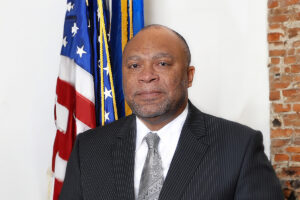
Interview of Rod Bremby, December 22, 2023
Interviewed by Rex Buchanan
As Secretary of Health and Environment for Kansas, Rod Bremby became the first U.S. public official to deny a coal-fired power plant operating permit due to climate change. In this interview he reflects on that decision made while navigating uncharted policy terrain and on lessons learned during his 30-year career in public service at the local and state levels. Bremby describes missed opportunities in considering the power plant operating permit application while saying clearly that, even in retrospect, it was the right decision. Bremby also explains how integration of health and environmental policy makes sense at the Show Morestate level. Notably, Bremby paints a picture of leadership that recognizes and relies upon the expertise and experience of public servants who serve under appointed officials. Show Less
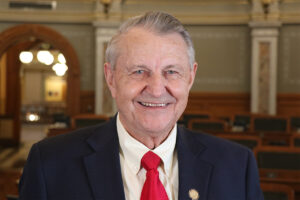
Interview of Richard Carlson, February 9, 2024
Interviewed by Chris Courtwright
Richard Carlson held several important positions in Kansas government -- Secretary of Transportation, Chair of the House Taxation Committee, County Commissioner of Pottawatomie County -- in addition to being a farmer/cattleman, banker, businessman. In his interview he describes his efforts as Tax Chairman to pass and implement Governor Brownback's tax plan of 2012. He acknowledged the plan as finally passed was "unsustainable." In 2016 Governor Brownback appointed Carlson to the position of Secretary of Transportation (2016-2019). During his time as Secretary, he oversaw the implementation of various transportation projects around the state.
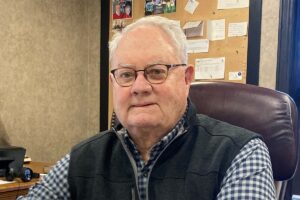
Interview of John O. Farmer III, December 28, 2023
Interviewed by Rex Buchanan
In this late 2023 interview, John O. Farmer III recalled his long career in the oil business with his family-owned company in Russell, Kansas. Farmer described the evolution of the oil business over decades as technology changed and improved the possibilities for small- to medium-sized companies in the oil industry. He observed that federal policies and market price fluctuations have more to do with the success or failure of the business than state policies. However, he noted, the interplay of state tax policies can make or break companies that depend on low-production oil wells.

Interview of Jim Gartner, February 16, 2024
Interviewed by Chris Courtwright
This interview sheds light on several activities related to the Kansas Legislature, particularly the role of lobbyist in decision making and the role of school boards in governance of education. It begins in 1967 with quite a tale of Gartner's service as a young Marine, wounded in VIetnam and how that impacted his career choices. A brief work experience building tires at Goodyear convinced him to get a college degree. Southwestern Bell Telephone hired him as one of the first male telephone operators in Kansas. He ended up as Vice President of External Affairs many years Show Morelater. He began his lobbying career in 1987 partnered with Denny Koch. Together they helped define deregulation and worked with both the legislature and the Kansas Congressional Delegation. In 2009 Gartner was appointed to the USD 437 school board to fill a vacancy. That's where he learned about school finance and governance. In 2016 Rep. Annie Tietze resigned and Gartner won that legislative seat. The House Taxation Committee was a logical appointment, given his lobbying background. The Brownback Tax Experiment was failing, and the legislature was eager to repeal it. Brownback vetoed the bill passed by the legislature; they quickly overrode his veto and restored more conventional tax policy. The interview concludes with a discussion of the food sales tax exemption proposed by Governor Kelly and Gartner's frustration with the legislative process and how it changed over the 30 years of his involvement. Show Less

Interview of Ed McKechnie, February 9, 2024
Interviewed by Chris Courtwright
This lengthy and wide-ranging interview is full of interesting stories about how the legislature worked when its leaders realized the House Democrats were in the majority by one vote (1990 election) with a new Democratic governor. The 1991-92 session was historic because of the major changes in property taxes and school finance. McKechnie built relationships across the aisle which helped him accomplish things and pass legislation. His interview is replete with descriptions of legislators with whom he worked. McKechnie served on the Kansas Bioscience Authority and after its demise, on the Kansas Board of Regents. Show More He discussed the transition of the University of Kansas Hospital to being designated a major cancer center. One particularly interesting story for football fans is about the major conference realignment that occurred from 2011 to 2012. He described in detail the negotiations over which university would stay or leave the Big XII. Ordinarily the Regents would not have been involved, but the impact of these decisions was too great to ignore. McKechnie also talks about the decisions the Regents made about raising tuition.
Highlights -- short excerpts from the interview
